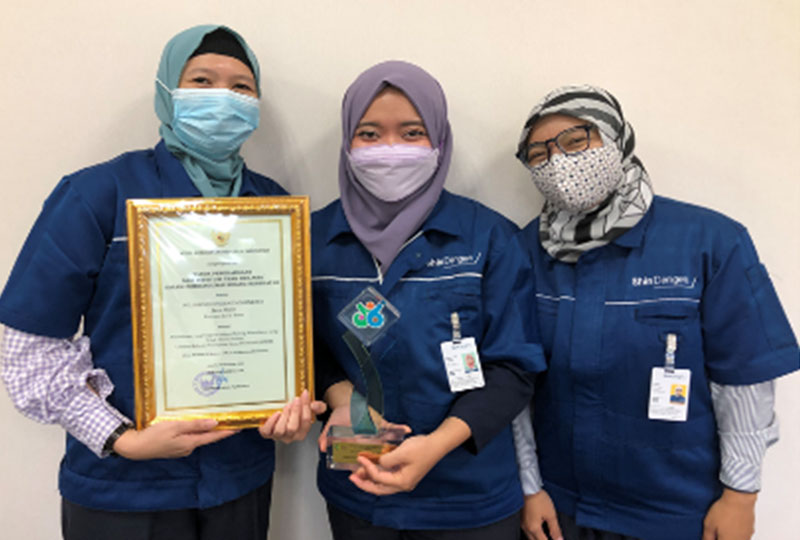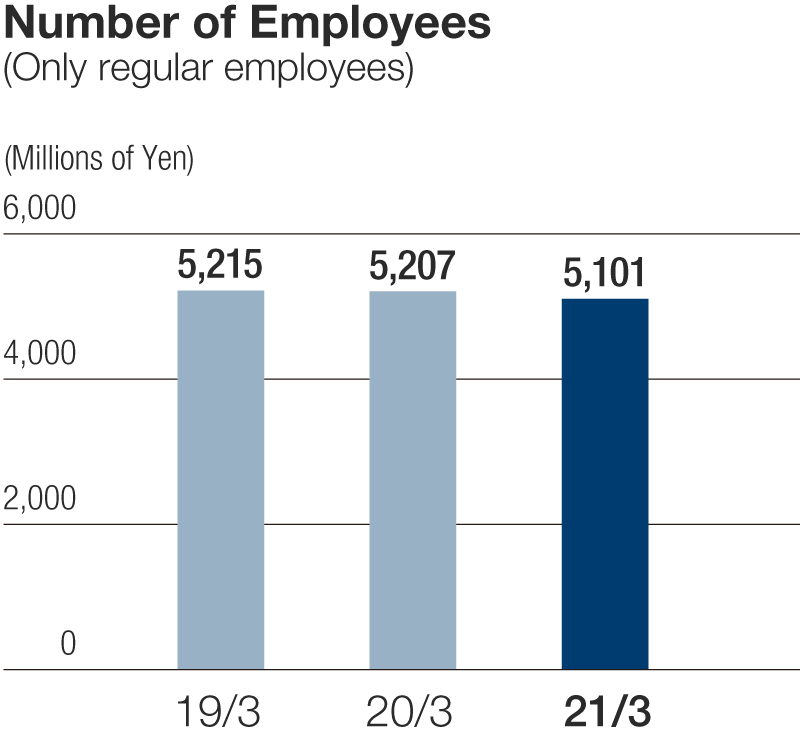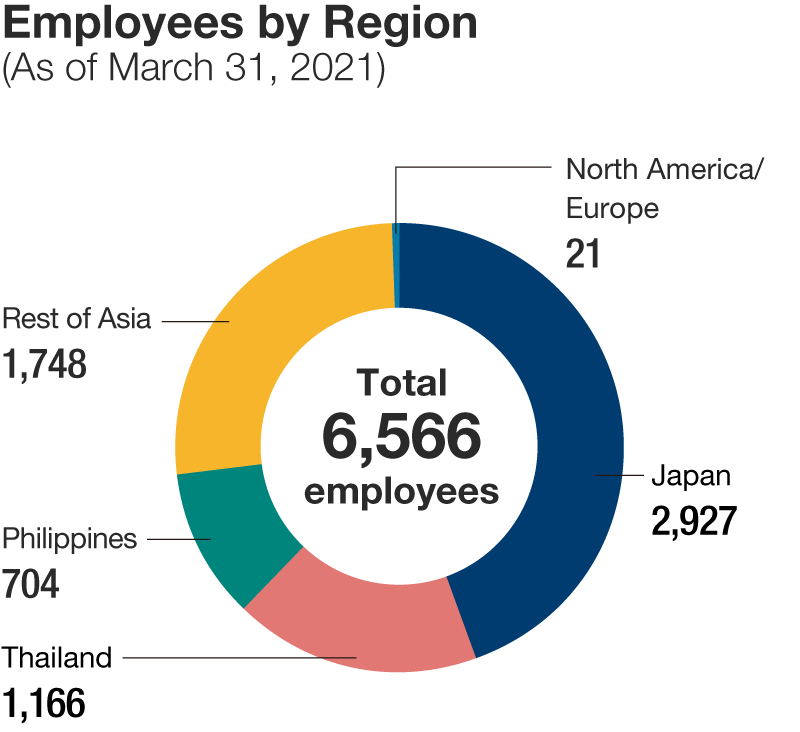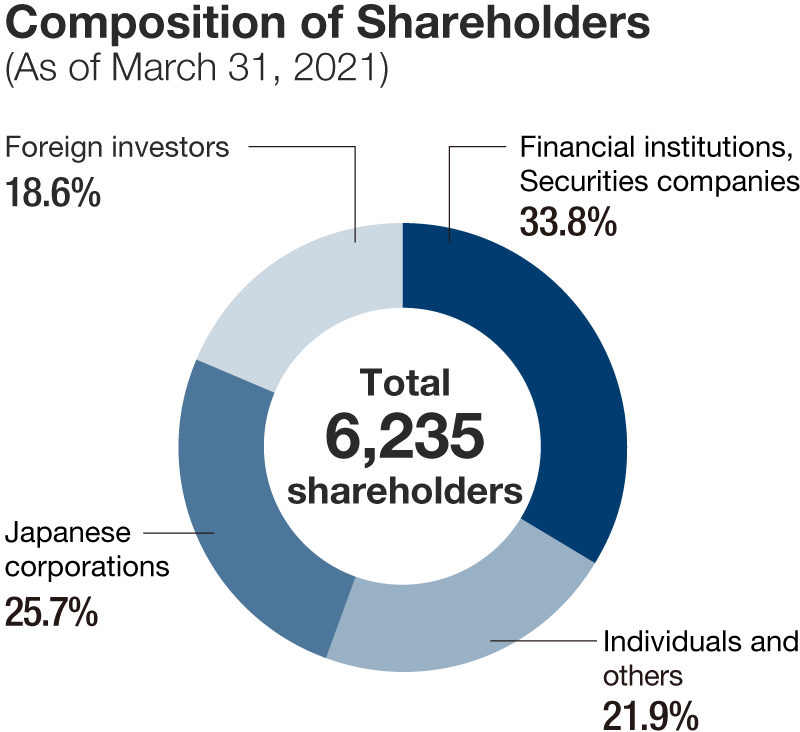The Shindengen Group respects international values with regard to human rights and is implementing initiatives to promote human rights, including raising awareness of social issues accompanying economic globalization and employee rights. In accordance with the Group Code of Conduct and internal Group standards, we prioritize workplace safety, the prohibition of harassment, and employee health. We offer career planning support and training for employees while advancing measures to create safer, healthier workplaces that accommodate diverse work styles.
Highlights
Employee-Friendly Work Environments

Shindengen Indonesia (SDI) manufactures such products as motorcycles ECUs and is an important Group location that generates considerable sales. About 60% of SDI’s employees are women, and SDI has established an internal medical center to support employee health. SDI also offers a wide range of programs, from support and counseling for expecting and recent mothers to coordination with local medical institutions, to ensure an environment where employees on a variety of career trajectories can work with confidence and comfort. Within the country’s 450,000 large- and medium-sized companies, SDI was ranked first in the nation among the category of enterprises with at least 100 female employees in a program coordinated by the Indonesian Ministry of Health to recognize companies that offer work environments that are friendly to women.
Response to the Act on Promotion of Women’s Participation and Advancement in the Workplace
Shindengen values diversity and has set goals for initiatives in line with the Act on Promotion of Women’s Participation and Advancement in the Workplace. We are working toward these goals to improve corporate value.
Goals for Initiatives Related to the Act on Promotion of Women’s Participation and Advancement in the Workplace
- Raise the percentage of women among new graduate hires to 30%.
- Actively place female employees in a wide range of divisions and positions.
- Further promote work-life balance.
Protecting Human Rights in the Supply Chain
To fulfill its social responsibilities throughout the supply chain, Shindengen works to verify whether or not its products contain conflict minerals* and takes steps to eliminate them. In addition, we issue statements about slave labor and human trafficking based on Section 54 (1) of the UK’s Modern Slavery Act.
* Conflict minerals are ores containing gold, tantalum, tin and tungsten mined in the Democratic Republic of the Congo and nearby countries that fund armed groups and anti-government organizations responsible for human rights violations and environmental and other problems.
Health and Safety
Issued in 2018, ISO 45001 (Occupational health and safety management systems) has seen increasing uptake worldwide, particularly in Europe, where there is a strong focus on occupational health and safety. Shindengen (Asaka Office) and Okabe Shindengen are advancing initiatives aimed at obtaining ISO 45001 certification in fiscal 2021 in order to maintain and improve workplace health and safety. In fiscal 2020, such initiatives included preparing rules and documentation in line with the specifications of ISO 45001 and building frameworks to ensure that every employee understands such specifications and is familiar with issues of occupational health and safety. We also held internal briefing sessions and online seminars to promote awareness and understanding of ISO 45001.
Highlight
Workstyle Reform Initiatives
Shindengen rapidly implemented Companywide remote work and flex time in response to the COVID-19 pandemic, establishing new rules for them that it plans to continue to utilize after the pandemic. Employees dealing with time constraints related to childcare or nursing care have also benefited from greater freedom in workstyles as a result of these systems, enabling them to work more efficiently.
Furthermore, in fiscal 2020, we launched Workstyle Reform Working Group Activities aimed at securing and developing high-quality human resources and improving the productivity of white-collar employees. Specifically, around 20 junior to mid-level employees chosen from a variety of workplaces regularly hold discussions. These yield views that are based on actual conditions for employees, helping to invigorate internal communication.
An example of a benefit to come out of this has been the use of chat software to reduce the use of email. Compared with sending emails, chat offers greater speed and makes it easy to see the opinions of multiple contributors together in chronological order, facilitating the sharing of information. The working group has issued a list of guidelines for internal communication to save time by reducing unnecessary formalities and set up a suggestion box, advancing initiatives aimed at changing Shindengen’s corporate culture for the better. We have also taken the opening of the Asaka Office as an opportunity to reexamine existing culture and customs as we search for ways of operating that are better suited to the new environment.




